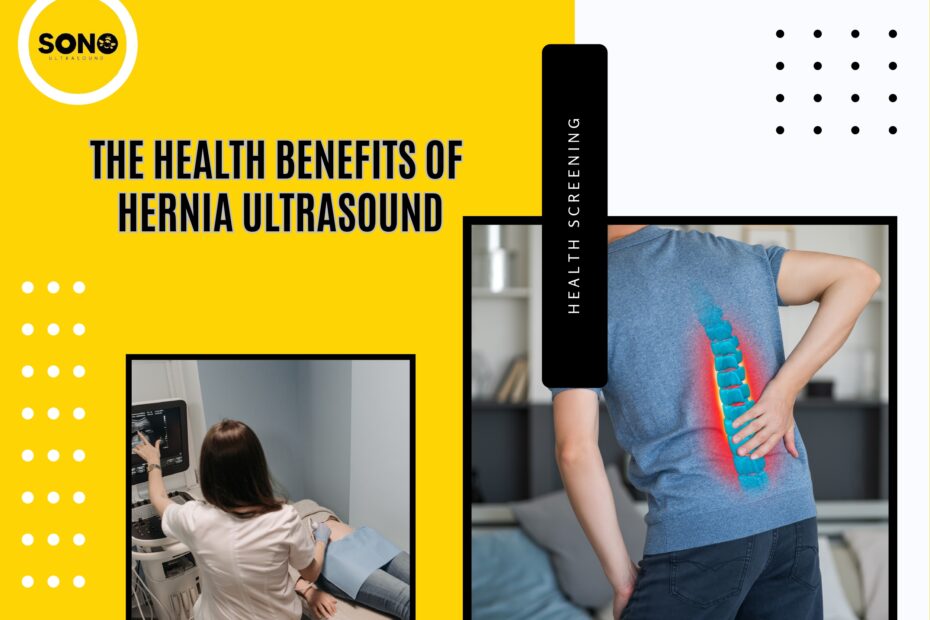A hernia ultrasound is a safe, painless, and non-invasive test that uses sound waves to create images of the body’s tissues and muscles, especially in areas where hernias are suspected. A hernia happens when an organ or tissue pushes through a weak spot in the muscle wall, commonly in the abdomen or groin. A hernia ultrasound helps doctors confirm if a hernia is present, see its size and location, and plan the right treatment. This test is simple, quick, and safe for all ages.
What is a Hernia Ultrasound?
A hernia ultrasound uses a small device called a transducer, which is gently moved over the skin where the hernia is suspected, often in the abdomen or groin. The transducer sends sound waves into the body, and those waves bounce back to create pictures of the muscles and tissues. These images show whether part of an organ, like the intestines, has pushed through a weak area in the muscle wall, which is what happens in a hernia.
This test is non-invasive, meaning there’s no need for surgery, needles, or incisions, and it usually takes about 15-30 minutes. It’s also safe because it doesn’t use radiation, making it an excellent option for anyone, including children and pregnant women.
Health Benefits of a Hernia Ultrasound
There are several important health benefits of performing a hernia ultrasound, particularly when it comes to diagnosing and treating hernias:
- Early Diagnosis of Hernias
One of the key benefits of a hernia ultrasound is its ability to confirm the presence of a hernia. Hernias are sometimes difficult to detect through physical exams alone, especially if they are small or cause only mild symptoms. An ultrasound can clearly show whether a hernia is present, where it is located, and how large it is. This early detection allows for timely treatment, which can prevent the hernia from getting worse.
- Guiding Treatment Decisions
Once the ultrasound confirms a hernia, doctors can determine the best treatment plan. Some hernias require surgery to repair the muscle wall, while others can be monitored if they are small and not causing symptoms. The ultrasound provides a clear picture of the hernia, helping doctors decide if immediate surgery is needed or if it can be managed with watchful waiting.
- Monitoring Hernia Growth
For people with small hernias that don’t need immediate surgery, an ultrasound can be used to monitor the hernia over time. This allows doctors to track whether the hernia is growing or causing new symptoms, which helps decide if surgery is needed in the future.
- Non-Invasive and Safe
The ultrasound is completely non-invasive, meaning there’s no surgery, no radiation, and no recovery time. It is painless and safe for all patients, including those who may need frequent tests to monitor a hernia’s progress.
- Quick and Convenient
A hernia ultrasound is a fast and easy procedure. It typically takes less than 30 minutes and provides results quickly, allowing doctors to make decisions about treatment without delay. This is especially important for patients experiencing pain or discomfort from a hernia.
When is a Hernia Ultrasound Needed?
Doctors may recommend a hernia ultrasound if you have:
- A noticeable bulge in the abdomen or groin area.
- Pain or discomfort, especially when bending over or lifting something heavy.
- Swelling or tenderness around the abdomen or groin.
- Digestive problems, such as difficulty with bowel movements.
A hernia ultrasound is a valuable tool for diagnosing and managing hernias. Sonobee recommend hernia ultrasound because it is a safe, painless, and non-invasive way to confirm the presence of a hernia, guide treatment decisions, and monitor the condition over time. By detecting hernias early and helping doctors plan the right course of action, a hernia ultrasound can prevent complications and ensure better health outcomes.
Book Your Health Screening Slot Here
Disclaimer: This content is for informational purposes only and should not replace professional medical advice. Please consult a doctor for any concerns
